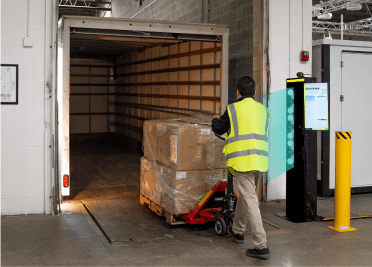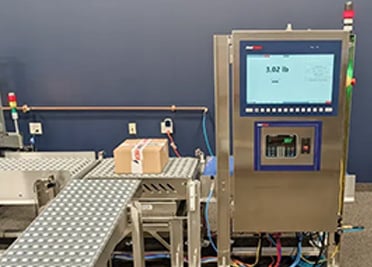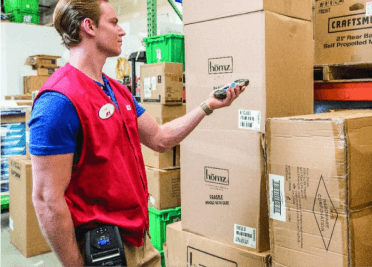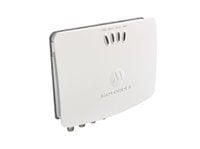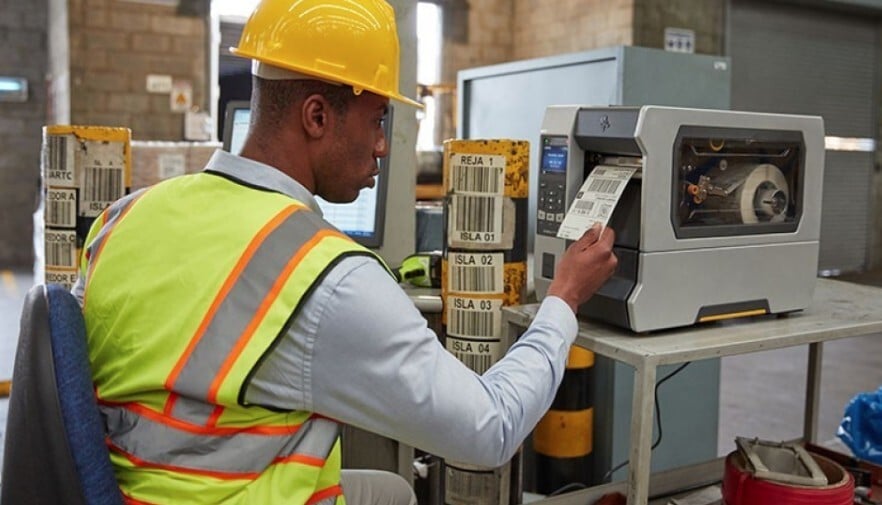Did you see our last blog about RFID in the manufacturing industry? If so, you know how important this technology can be to asset management and tracking. If you missed the memo, RFID is a type of data collection technology that requires no manual scanning or line of sight (unlike bar code systems). RFID wirelessly exchanges information between a RFID tag and an RFID reader/writer. RFID-tagged objects can be read in different locations at high speeds.
An RFID system consists of one or more tags that include a semiconductor chip and antenna mounted onto an insert. This insert is protected by a material to form a finished label or tag. Also included in the system are one or more read/write devices (RFID readers), two or more antennas (one on each reader and one on the tag), a host computer system and application software.
Radio waves transfer data between a reader and an RFID tag, which are tuned to the same frequency. With passive RFID tags, the reader sends out a signal which is received by all tags with the same frequency present in the RF field. Tags pick up the signal with their antennas, and then respond by sending back their stored data.
A tag has the ability to hold many different pieces of data about an item, including: the times it has traveled through particular zones, configuration instructions, serial numbers, temperatures and other data provided by sensors. The read/write devices receives the tag signal via its antenna, decodes this signal, and transfers any applicable data to the host computer system.
RFID tags can be attached to pallets, tractor-trailers, cases, individual items—just about anything, really. If multiple tags are present in the field, efficient (read, sophisticated) RFID systems have anti-collision algorithms, which determine order of response.
The Zebra RFID product line (FX7500/FX9500/MC9190-Z/MC 3190-Z/RFD5500) offers several readers, scanners, printers, etc. from which to choose, meaning you can easily determine which product(s) best fit your business. For more information about how you can implement these technologies in your manufacturing enterprise, contact AbeTech today online, or call us toll-free at 888.682.311.3
